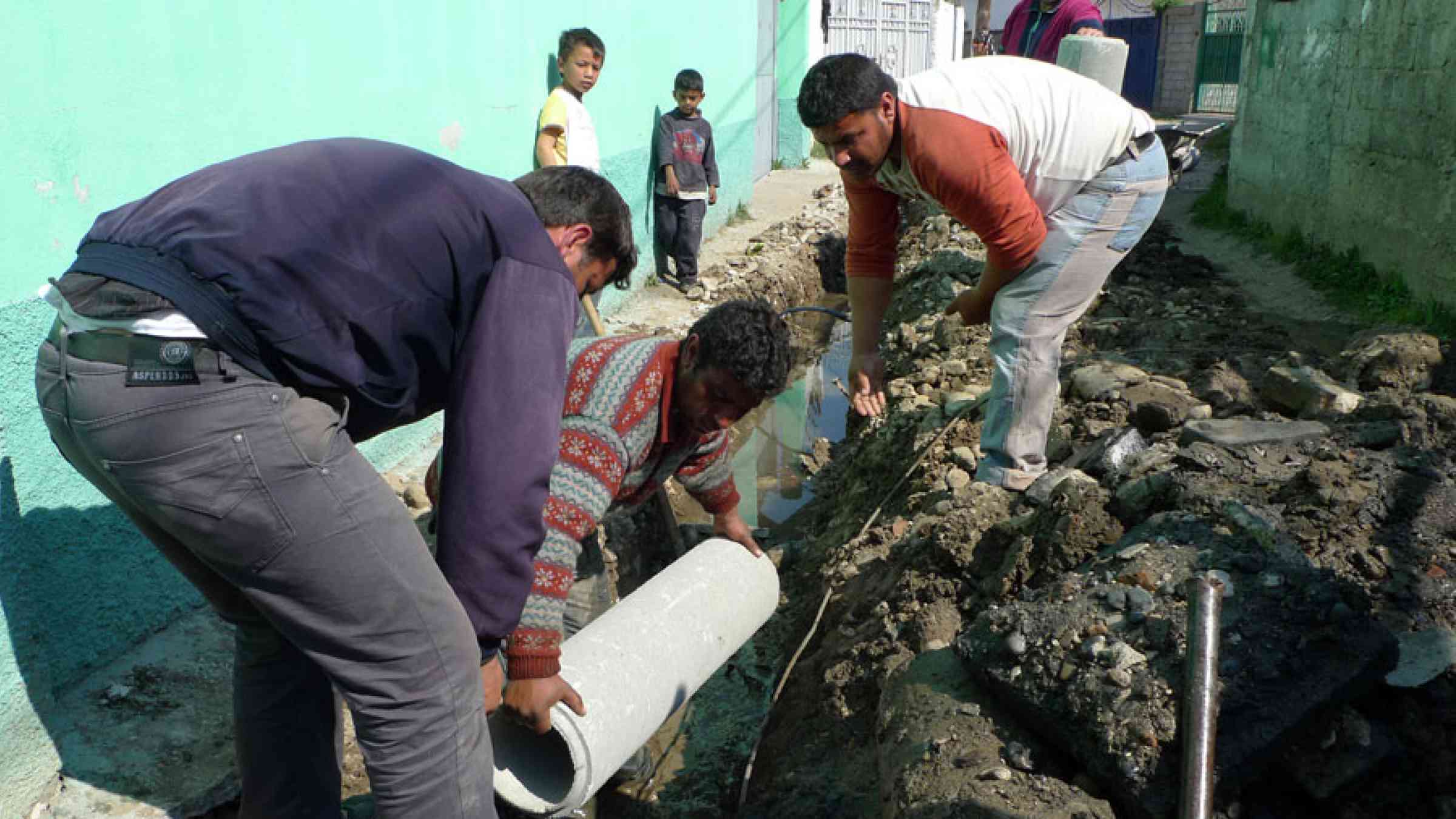Framing matters: Communicating coastal rebuilding to the public

As climate-driven flooding becomes more common, policymakers and the public are more frequently confronted with two questions: whether to rebuild in flood-prone areas and who should be responsible for the cost repairing or replacing damaged homes and infrastructure. We wanted to know more about how the American public responds to arguments that support or oppose using federal assistance to rebuild in coastal flood zones, as well as how they receive arguments attributed to either Democrats and Republicans.
Our research found that public viewpoints about rebuilding and who should foot the bill were powerfully influenced by messages arguing for or against providing federal assistance. Furthermore, the responses of Democrats and Republicans were also impacted by whether messages were attributed to sources inside or outside of their identified affiliation.
Messages frames and partisan source cues
Since the issue of federally subsidized rebuilding is a complex one, the way various arguments are presented can affect the way people think about the issue. This is supported by the theory of message framing. Different frames can increase or decrease support for federal contributions to rebuilding in coastal flood zones.
A message emphasizing that one basic purpose of government is to protect citizens-and that withholding federal assistance would leave many people homeless after a disaster-could increase support for rebuilding and solidify the belief that it is government's responsibility to provide aid. People might also respond favorably to arguments that rebuilding will benefit the local economy and that innovative and environmentally sensitive rebuilding can protect coastal habitats. Finally, highlighting the collective responsibility to help each other in times of crisis can also increase the perception that rebuilding in these areas is the right thing to do.
On the other hand, there are frames that could reduce support for federally funded rebuilding. A message positing that federal investments encourage development in high-risk areas, creating future risk for people and property, could increase opposition. Arguments that rebuilding is an inefficient and inequitable use of taxpayer money that can destroy natural ecosystems could also generate opposition. Another argument that could reduce support is that individuals can choose to live where they want, so it is their responsibility to assume the risks through private insurance or other means.
Furthermore, people take "cues" from others about whether they should pay attention to a message. People may trust some sources of information more than others. In a politically polarized society, a message from one's own political party may, for example, have more of an impact than one from the opposing party. This is an example of the effect of a partisan source cue. More generally, a message will be more impactful if the source of the message is trusted by the individual hearing the message.
Who should pay for rebuilding?
To study the impact of these messages and cues on rebuilding, we surveyed a nationally representative sample of 2,000 people who self-identified as Republicans or Democrats. Respondents were randomly assigned to either a control group or to read a short passage that included the arguments above without any source attribution or with the respective message attributed to either Democrats or Republicans.
Respondents were then asked if they supported the federal government paying to rebuild homes and subsidize insurance in coastal flood zones; what their beliefs were about the impacts of rebuilding on public safety, the economy, and the environment; whether the government or individual residents should be primarily responsible for rebuilding costs; and if they would be willing to pay additional taxes to support such federal assistance.
In line with our expectations, the message framing had the greatest impact on opinions, as well how people felt about both the effects of rebuilding and who is financially responsible. While messages attributed to the opposing political party were often less impactful compared to one's own party, respondents did not blindly follow party cues and often found the messages persuasive regardless of the source.
This research contributes to a better understanding of how Americans respond to information advocating or opposing federal assistance to coastal flood victims or likely future flood victims. The topic may gain salience as even more damaging coastal flooding and windstorms result from continuing climate change.
Science communicators engage in framing when they emphasize specific information about a topic or issue to an audience. The careful selection of frames can play a vital role in gaining public attention, shaping public discourse, and improving the public's understanding of policy debates-including whether federal funds should be used to rebuild homes in coastal flood zones.